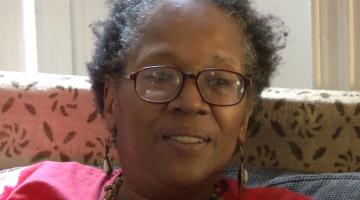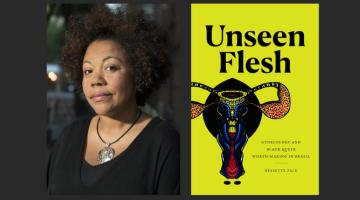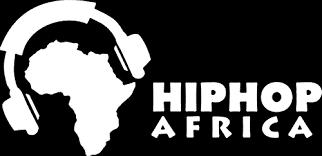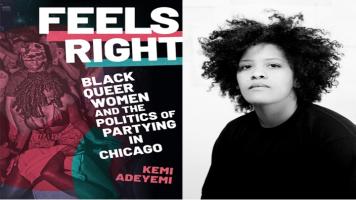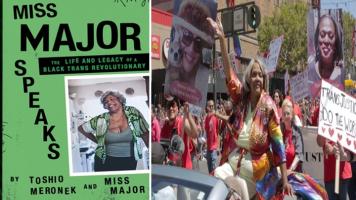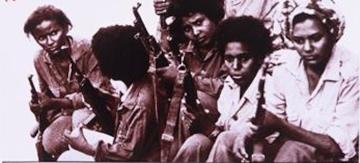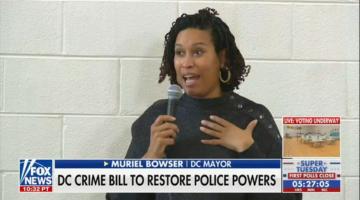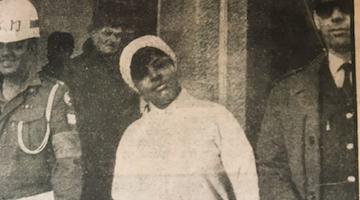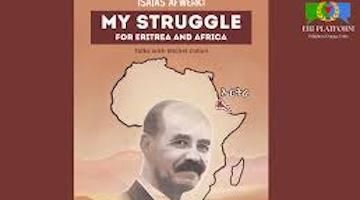In this series, we ask acclaimed authors to answer five questions about their book. This week’s featured author is Shanté Paradigm Smalls. Smalls is Associate Professor of Black Studies in the Department of English and Faculty in Critical Race & Ethnic Studies at St. John’s University. Their book is Hip Hop Heresies: Queer Aesthetics in New York City. The book will be published on June 28th and there will be book release event on July 5th at The Strand Bookstore. Details can be found here.
Shanté Paradigm Smalls: Hip Hop Heresies: Queer Aesthetics in New York City is a love letter to the enduring, complex, and overlooked histories of hip hop in New York City. Many people think of history as being stuck in the past, but cultural and social histories, especially, are ways to have conversations with the past, present, and future. Because my lens is aesthetics and performance, it lends a vibrancy to past and present artists and art objects that are disruptive to easy narratives about what hip hop culture and performance is or isn’t. In that way, my book reminds us all of the incredible power of the so-called powerless or disenfranchised people. They revolutionized the world of sight and sound. Even though they were often obscured by white capitalist forces, I think about the power of Black people and our aesthetic performances’ capacity to change our experience of the world no matter what our conditions. I also think this is a very fascinating cultural moment to have a book about NYC hip hop’s inherent queer aesthetics. I know some people will be offended, angry, and defensive about putting “queer” and “hip hop” together—but my book demonstrates how and when and where they already have been proximate for a long time.
What do you hope activists and community organizers will take away from reading your book?
One thing I hope activists and community organizers take away from this book is the power of art—I think a lot of folks realize how powerful an organizing agent art can be, but sometimes I think that realization or knowledge gets put in a different category from activism, organizing, and politics. Black diasporic folks have a long lineage of art-as-activism and it’s important to remember how we use our talents: visual, movement, sonic, spoken, written, etc, to move people and to heal people. Hip hop is a tool that can be used for anything; we’ve seen how it’s been wielded against us or for the profit of others. I hope that Black folks remember to archive and honor all the incredible work we’ve created. I also want the definition of activist and organizer and the work that they do to broaden. I think folks need to include art, care work, rest, travel, spirituality, and deep and deliberate thinking (as opposed to hot takes or the dreaded “think” pieces) as part and parcel of activism. I was recently abroad and reminded of how many great works of writing and art and performance happened because Black people from the Americas and the African continent came together and shared space and go to know each other. Activists and organizers also need things like healthy lives, collaboration, large and flexible networks, connections to ancestors, and travel outside of their smaller worlds to get fresh and innovative ideas for how to care for self, other, and our environment.
We know readers will learn a lot from your book, but what do you hope readers will un-learn? In other words, is there a particular ideology you’re hoping to dismantle?
The main thing that’s been on my mind is the power of patriarchy to destroy lives. I know there’s a lot of interest in talking about the destruction of the Black man, in particular, through queerness, transness, or effeminacy, but the real enemy is white patriarchy that constantly limits and erases Black indigenous ways of embodiment. The range of how we have lived and experienced our bodies was almost totally erased under chattel enslavement; and things that weren’t erased like communal decisions were derided by white patriarchs. There is a lot of healing to do so that we don’t flatten masculinity, which in turn breeds violence against all things feminine or divergent. Patriarchy hurts all of us. I am somewhat astounded after all the work done over the last 100 or so years in Black thought, both popular and scholarly, that there is so much investment in having power over women, children, and femmes. Either power over and/or the power to destroy. But this type of power is destructive for men, males, and masculine people as well, as it robs them of being a full human being, being gentle, being curious, being fearful, being cared for, being sad, and real intimacy. My aspiration is that some of this book will get people thinking about what kind of masculinity they want to inhabit and cultivate.
Which intellectuals and/or intellectual movements most inspire your work?
Black feminist theory, Black liberation movements, Black arts movements, Black queer artists and writers are all huge inspirations. Toni Morrison, James Baldwin, Audre Lorde, Octavia Butler, W.E.B. Du Bois, are some of my most favorite writers as well. I am really a fan of Black thinking that is liberatory, so I read a lot of comics, watch films and television, and read works that are invested in the whole of Black people. I am really spending more time with US Black thinking of the 1970s and 1980s and a lot of Black postcolonial writing from the 1950s-onward. Growing up, I found a lot of radical Black reading on my own like Walter Rodney’s How the West Underdeveloped Africa, Toni Morrison’s Tar Baby, Alex Haley’s The Autobiography of Malcolm X, and Audre Lorde’s Zami. These are all books I read in middle school and high school and they had a huge influence on my thinking and later, my living. I credit them as part of my de-colonization process. Now, I’m really trying to read more Black women, femmes, trans, and gender-non-conforming from the Caribbean and Africa: so I’m reading work by Awaeke Emezi, Andaye, and Nnedo Okorafor to name a few.
Which two books published in the last five years would you recommend to BAR readers? How do you envision engaging these titles in your future work?
I would recommend Anaïs Duplan’s book of poems Blackspace: On the Poetics of an Afrofuture (2020) and Keguro Macharia’s Frottage: Frictions of Intimacy across the Black Diaspora (2019). I hope to work both into my next book project which is on Black survival tactics and strategies in and under dystopian future contexts. Duplan’s book is an award-winning gorgeous collective of powerful and evocative poems, and it really helped me break open my thinking about how I can write a scholarly work. I think of my writing style as playful, always with a little cheek to it. As I am working on this next manuscript, I’ve been trying to keep that sense of wonder, exploration, curiosity, and enjoyment. I think because I’ve earned tenure, it’s taken that huge pressure cooker off me and I can find more delight in my writing and research. Keguro Macharia’s book is brilliant and accessible and so knowledgably. Most importantly for me, it is written so poetically even though it’s critical theory. His book is also one that reminds me to keep the diasporic nature of blackness in my forethought. Because my next book is about worlds and multiverses, rather than a city in the northeast US, I am wanting to be aware of how I am thinking about, writing about, and invoking blackness.
Roberto Sirvent is editor of the Black Agenda Report Book Forum.

